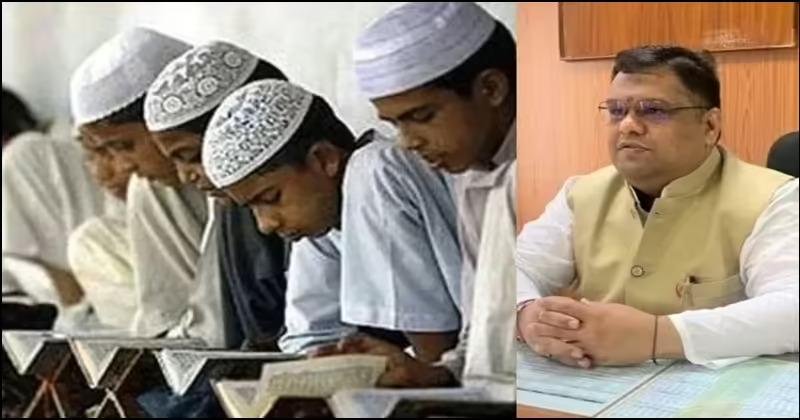On June 12th every year, World Day Against Child Labour is observed with the aim of ending child labour and raising awareness on this issue. This day reminds us of our commitment to protecting the rights of children and ensuring their safety and education. In this context, the recent disclosure by the National Commission for Protection of Child Rights (NCPCR) regarding child trafficking in Bihar underscores the need for concrete steps to understand and eliminate this problem.
Child Trafficking in Bihar
The NCPCR report indicates that traffickers are carrying out child trafficking in Bihar and several other states, including Uttar Pradesh, under the guise of providing education to young children in madrasas, forcing them into child labor. Using the example of 95 children rescued in Ayodhya on April 26th, from Purnia and Araria, the commission has directed all states to put a halt to such activities. These children were being taken to a madrasa in Saharanpur, where they were intended to be engaged in child labor.
Responsibility of Authorities
The Chairperson of the National Commission for Protection of Child Rights, Priyank Kanoongo, has entrusted the responsibility of preventing such exploitation of children to child protection units, anti-human trafficking units, and special juvenile police. Under SOP (Standard Operating Procedure), authorities ensure that they do not send children aged 5 to 12 years to other states for religious education but enroll them in schools near their homes.
Monitoring of Religious Educational Institutions
The commission has issued SOPs for the monitoring of all religious educational institutions. It explicitly orders to stop any collection of donations under the guise of religious education and mandates conducting a joint inspection, with a report to be submitted within 15 days. Religious institutions must ensure compliance with educational rights laws and provide children with proper education, nutrition, and care.
Inhumane Treatment of Children
The accounts shared by the rescued children from Ayodhya paint a distressing picture. They revealed that two Maulvis were transporting them to a madrasa in Saharanpur without proper authorization or parental consent. Even worse, those vulnerable children endured degrading tasks such as cleaning toilets, and they barely received their basic nutritional needs, with only one or two rotis being provided per day. Such egregious treatment not only undermines their dignity but also starkly breaches their fundamental rights as children, highlighting the urgent need for comprehensive protection measures and swift action against such exploitation.
Solution and Directions
We should consider the following points for resolving this issue:
Legal stringency and monitoring: “We should strengthen laws to prevent child trafficking and strengthen special units to monitor them.
Compliance with the right to education: “We ensure enrolling all children in schools near their homes and providing them with quality education.
Accountability of religious institutions: Religious educational institutions should actively hold themselves accountable for respecting children’s rights and providing proper care, education, and nutrition.
Collaboration and coordination: We should increase collaboration and coordination between child protection units, anti-human trafficking units, and the police to prevent child trafficking.
Public awareness: We should launch campaigns to raise awareness against child labor and child trafficking in society.
Conclusion
Child labor and child trafficking not only infringe upon the fundamental rights of children but also cast a shadow over their potential and aspirations. World Day Against Child Labour serves as a catalyst for intensifying efforts to combat these injustices. Through the unwavering enforcement of guidelines and interventions set forth by the NCPCR, we can confront this menace head-on. In doing so, we pave the way for a future where we shield children from exploitation, empower them through education, and afford them the opportunity to flourish. It’s imperative to cultivate a society where we respect the rights of every child, ensuring a pathway to a brighter tomorrow.
ALSO READ: Rajat Sharma challenged the Congress to meet in court
